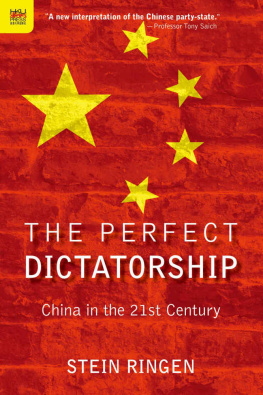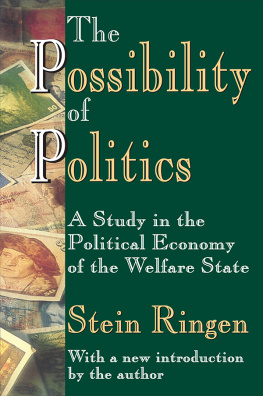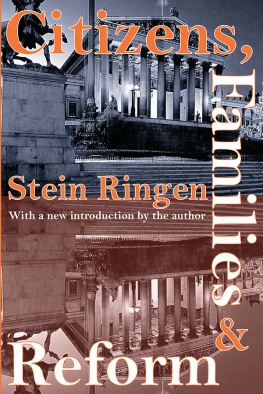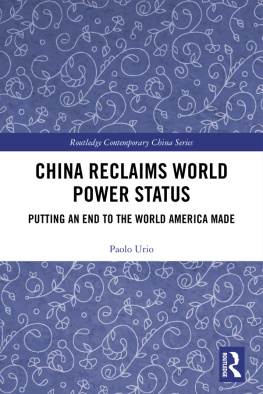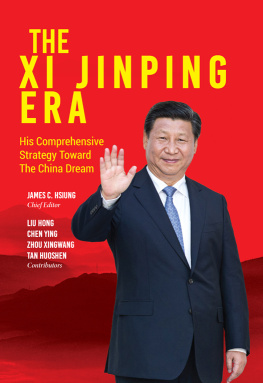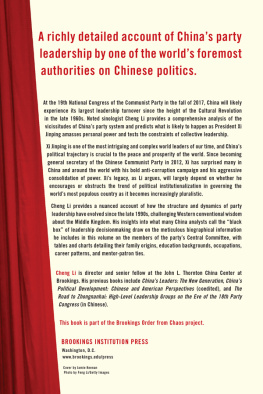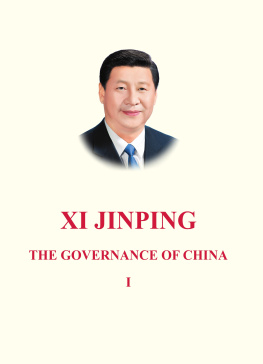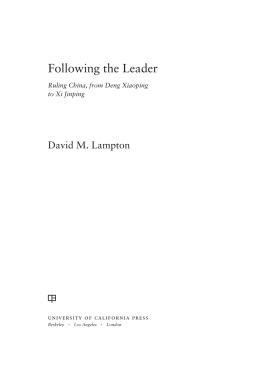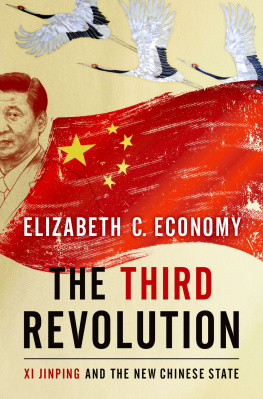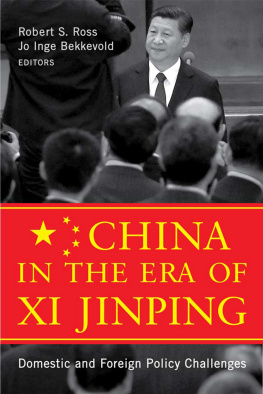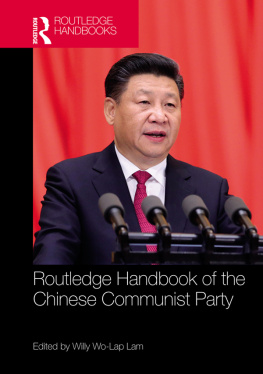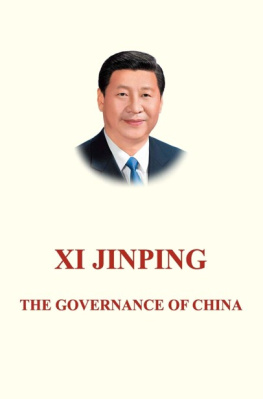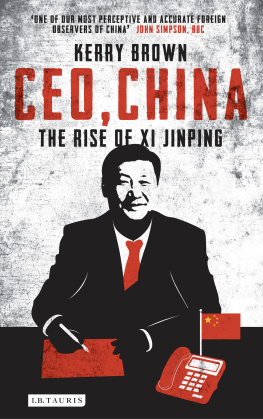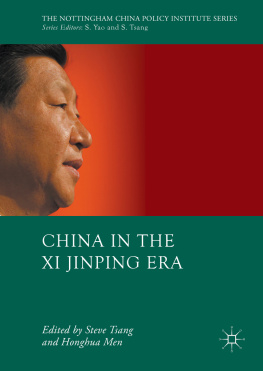The Chinese system is like no other known to man, now or in history. This book explains how the system works and where it may be moving.
Drawing on Chinese and international sources, on extensive collaboration with Chinese scholars, and on the political science of state analysis, the author concludes that under the new leadership of Xi Jinping, the system of government has been transformed into a new regime radically harder and more ideological than the legacy of Deng Xiaoping. China is less strong economically and more dictatorial politically than the world has wanted to believe.
By analysing the leadership of Xi Jinping, the meaning of socialist market economy, corruption, the party-state apparatus, the reach of the party, the mechanisms of repression, taxation and public services, and state-society relations, the book broadens the field of China studies, as well as the fields of political economy, comparative politics, development, and welfare state studies.
This is an excellent book which asks important questions about Chinas future. In a lively and persuasive manner, the author vividly analyses key data in a comparative and theoretical manner. Far and away the best introduction to how the CCP dictatorship works.
Edward Friedman , University of Wisconsin-Madison
There is no lack of scholars and pundits abroad who tell us that dictatorship in China is for the greater good. In a timely and engagingly written book, Stein Ringen systematically demolishes all the components of this claim.
Frank Diktter , University of Hong Kong
Stein Ringen shows how the Chinese state has used both fear and material inducements to build a controlocracy of a size and complexity unprecedented in world history. Perfect as a dictatorship, but brutal, destructive, and wasteful. The authors encyclopedic understanding of his topic is based on a mastery of relevant scholarship and is delivered in clear, no-nonsense prose that bows to no one. Ideal as a textbook.
Perry Link , University of California, Riverside
A new interpretation of the Chinese party-stateshows the advantage that derives from a comparative theorist looking at the Chinese system.
Tony Saich , Harvard University
China is a complex country, and there is a range of reasonable interpretations of its political system. Professor Ringens interpretation is different than my own, but China watchers need to engage with his thought-provoking and carefully argued assessment. If current trends of repression intensify, less pessimistic analysts will need to recognise that Ringens analysis may have been prescient.
Daniel A. Bell , Tsinghua University
Inspirational and trenchant. Stein Ringens book is a must-read to understand Chinas politics, economy, ideology and social control, and its adaptability and challenges under the CCPs rule, especially in the 21st century.
Teng Biao , Harvard Law School and New York University
Stein Ringens insights as a prominent political scientist enable a powerful examination of the Chinese state in a penetrating analysis that reaches strong conclusions which some will see as controversial. The book is scholarly, objective, and free from ideological partiality or insider bias. Whether one ultimately wishes to challenge or embrace his findings, the book should be read.
Lina Song , University of Nottingham

Courtesy of Tiril S. Falklev
Stein Ringen is emeritus professor at the University of Oxford. He brings to this study extensive experience of state analysis in America, Britain, Scandinavia, Europe, and Korea. He is the author, most recently, of Nation of Devils: Democratic Leadership and the Problem of Obedience .
The Perfect Dictatorship
Also by Stein Ringen
Nation of Devils: Democratic Leadership and the Problem of Obedience (2013)
The Korean State and Social Policy: How South Korea Lifted Itself from Poverty and Dictatorship to Affluence and Democracy (with Huck-ju Kwon, Ilcheong Yi, Taekyoon Kim, and Jooha Lee, 2011)
The Economic Consequences of Mr. Brown: How a Strong Government Was Defeated by a Weak System of Governance (2009)
The Liberal Vision and Other Essays on Democracy and Progress (2007)
What Democracy Is For: On Freedom and Moral Government (2007)
Citizens, Families and Reform (1997 and 2005)
The Possibility of Politics: A Study in the Political Economy of the Welfare State (1987 and 2006)
The Perfect Dictatorship
China in the 21st Century
Stein Ringen

Hong Kong University Press
The University of Hong Kong
Pokfulam Road
Hong Kong
www.hkupress.org
2016 Hong Kong University Press
ISBN 978-988-8208-93-7 ( Hardback )
ISBN 978-988-8208-94-4 ( Paperback )
All rights reserved. No portion of this publication may be reproduced or transmitted in any form or by any means, electronic or mechanical, including photocopy, recording, or any information storage or retrieval system, without prior permission in writing from the publisher.
British Library Cataloguing-in-Publication Data
A catalogue record for this book is available from the British Library.
10 9 8 7 6 5 4 3 2 1
A friend who has written an excellent book about modern China says in his preface that he wishes China well. For my part, I wish the Chinese well. I dedicate this book to the Chinese people and to their freedom, happiness and prosperity.
Contents
Preface
This book has been some time in the making. Some main conclusions were reached quite early in the project and have been confirmed in subsequent developments.
I early on found that the workings of the complicated mixed command and market economy have caused an exaggerated view of Chinas economic strength. There has without question been strong economic growth, and the Chinese economy is obviously a very big one, but China has not advanced economically, and hence in strength generally, to the extent the leaders have boasted and the world has mostly accepted. In part official statistics have overstated growth, and in part weaknesses and costs in the socialist market economy have gone unaccounted. By 2015, accumulated weaknesses in the economy burst through the surface of pretence, manifested in the mid-year stock market crash, and rattled the confidence of the regime, its people, and international markets.
I also found that the political system is better described as harshly dictatorial than as mildly authoritarian. That conclusion I had reached by the time of the last change of leadership, in 201213. This leadership has subsequently cracked down upon real and imagined oppositional forces with much brutality. However, I do not think it would be correct to say that Xi Jinping and his allies brought dictatorship back to China. There is a continuity of political dictatorship during economic opening up. What the new leaders have done is to put to effective use the apparatus that was ready for them when they came into office. I think we should be clear and straight in language and that China analysis should be grounded in an undisguised awareness that we are dealing with a dictatorial state.
The regime uses an intricate combination of legitimacy and control to maintain its highly prized stability. It has bought legitimacy with the spreading of economic rewards and by fostering a reputation of effective governance. It has exercised control with the help of propaganda, thought work, and brute repression. However, under Xi Jinpings leadership there has been a shift in the mode of governance. With the pace of economic growth sliding downwards, the regime turned more strongly to the use of controls, as if it lost confidence in its ability to purchase legitimacy. It intensified repression, reverted to Maoist traditions of propaganda and political education, streamlined and centralised the structures of power, and extended the role of the party. It scaled back collective leadership for a new kind of one-person rule, complete with a touch of person cult around the supreme leader. It brought ideology back in more strongly than at any time since Mao, albeit a new brand of ideology, under Xis label of a nationalistic China Dream. This shift has happened step by step but systematically enough to establish the Xi regime as radically different from that of Deng Xiaoping and his followers.
Next page
